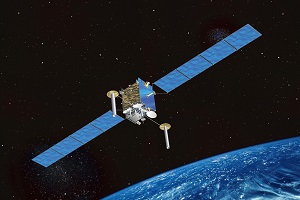
This week has seen Aircraft Interiors Expo in Hamburg Germany with ADS member Inmarsat highlighting some of the ways they are delivering in-flight wifi and enhancing the future of passenger connectivity. This is all delivered through satellite based solutions and is one of many strands of the UK’s successful sector.
The UK is at the forefront of innovation in the Space sector and this is of vital importance to the UK economy:
- £11bn in turnover
- £4bn in exports
- 34,000 direct employees
- 1,200 apprentices
Not only does the Space sector make such a big contribution to the UK economy but it also supports us in our every day lives, with 40% of the world’s small satellites made in the UK and a 20% share in the global telecoms satellite market.
There are over 1000 active satellites in orbit and while the majority of these are commercial satellites there are also scientific and military satellites too – depending on the purpose of these satellites there are several different orbits that they can take:
- Low Earth Orbit: between 180-800km – these satellites tend to be earth observation satellites.
- Medium Earth Orbit: around 20,000km – these are mainly GPS and other positioning satellites.
- Geosynchronous Orbit: around 35,800km – these are usually communication satellites and match the direction and speed of the Earth’s rotation.
Satellite services are becoming increasingly more available and more affordable helping to provide solutions for issues from flood and storm damage to remote healthcare advice. With CubeSats measuring around 10cm x 10cm x 10cm and costing around £25,000 to make, these satellites are changing the accessibility of satellite data and unlocking the ability for all the enter space.





